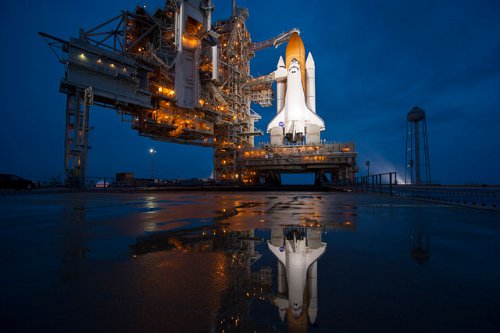
Space has captivated mankind since our earliest days. We wonder what is up there beyond our reach, and it fascinates us. I have recently been thinking about how social media is a lot like space exploration. It holds a lot of mystery, and it inspires us to learn what is out there beyond our geographical confines.
Why do we constantly strive to understand the things we do not know? Can any of us adequately answer that question? I sincerely ask for your ideas and opinions on this. I think the simple answers are at our fingertips. It excites us to get our brain cells working, and to make something new and useful happen, but it goes much deeper than this.
Just think of all the great possibilities for us as we discover new things. When we stretch our imagination, we reach beyond our own current capabilities and it keeps us moving forward. The desire to learn about the things which are just beyond our grasp has inspired countless innovations to bring us closer. Those innovations include boats, trains, airplanes, cars, telephones, the Internet, and many more … even space ships.
Knowledge is Keeping Us Alive
It is easy to argue that striving to know more is what keeps us alive. As our planet’s population doubled from three billion in 1960 to over six billion just forty years later, our knowledge has grown with it. The knowledge did not just grow because we had more people, but because the ability to communicate and build upon their ideas grew.
With mankind’s growing knowledge came innovation, and it was based on necessity. Just between 1987 when the five billionth baby was born and their 12th birthday in 1999 when the six billionth was born, the need to keep up with growing demand for food, water, shelter, and distribution of goods created a huge burden.
It would be easy to look at a simpler time and say that we didn’t need all of this technology. Things used to look easier in some ways, and time seemed to move slower. Some will imagine it as an “easier” time, before modern technology, but when we look out across a crowd of over six billion people breeding faster and dying slower than ever before, we realize that it is too late to turn back now.
We may not all see it the same way, but one thing is clear … if we are to maintain what we have today, we must keep learning and progressing … we must innovate.
Learning, creating, and imagining new things has made it possible for us to sustain our planet at its current highest population ever. In another forty years, our population is expected to reach nine billion people … a full nine times Earth’s population 200 years ago.
Commitment to innovation is how we discovered even the most basic things which serve us every day, like fire, hammers, scissors, and that little clip on a bread bag that keeps the bread fresh. The human imagination and potential for innovation is amazing, but it holds little value if we don’t use it, and if we don’t maintain its momentum. Innovation is greatly improved when we involve others, and that is why we have “think tanks” and “incubators” for our best ideas, and our best thinkers.
I believe that the greatest think tank of all is social media. With social media, we can share our ideas with others, and allow them to help us mold them into something better.

How is Social Media Like Space Exploration?
The reason I’m thinking of space exploration today is because I was recently approached to define a social media strategy to help people understand the need for space exploration, and its benefits to innovation.
A remarkable parallel between social media and space exploration is that most people will agree that they both hold great value, but yet, lack the confidence to invest properly, and patience to maximize their respective benefits.
Creating confidence to invest is a big challenge. Times are tough, and people are afraid of their government defaulting, their money losing value, and their jobs dissolving into thin air. Why would taxpayers and business leaders spend money on such progressive research?
A similar argument came along with “The Human Genome Project“. That $800 billion project came with an answer for the people when studies showed a 141:1 ratio return on investment. That’s $141 dollars in additional economic activity for every government dollar invested. Try that with your mutual fund.
Many governments spend horribly. In fact, I think my own is among the very worst, in USA. I am not for big government in the least little way. Our government’s job is not to do our thinking and our bidding for us. It is our government’s job to foster a safe and organized society and get out of our way. At the same time, the decisions which affect our continued scientific exploration are often relegated to our governments. That is because it is often a part of providing that safety and organization which is their duty.
Knowledge Creates Economic Stability … Yes, Jobs!
Science serves to remind us that we don’t know how much we don’t know. Social media does the same.
Scientific study such as genomes and space exploration produce the information and engineering we need to maintain and improve our lives, and they also create huge numbers of jobs. Those jobs include engineers, laborers, office workers, teachers, builders, and so many others. Think of “The Butterfly Effect” to imagine the diversity of jobs and other related benefits to the scientific study of space.
I have asked a few friends how they believe the aerospace industry has changed their lives and careers. Each of them could name at least a few ways it has made their lives better. It affects medicine, farming, fishing, alternative energy production, navigation, weather forecasting, and so much more … not the least of which is the transfer of information from one side of the world to the other, via satellite. Cardiac pacemakers, breast cancer screening, smoke detectors, cordless drills, and many other great things came from space exploration and related research. It reminds me that we are good at seeing the dots, but until we use systemic thinking we often cannot connect the dots between space and our daily lives.
Of the friends I have asked so far, not a single one was opposed to learning more about the real-world ways that the aerospace industry is helping to keep us safer, happier, and more economically stable. Fortunately, each of them also recognized that the matter of funding space programs is not a partisan effort with democrats against republicans. Both major political parties in America are largely in favor of continuing space exploration, but the people making policies and determining funding want to hear it from the people.
The space program in the United States used to be a matter of national pride, and as we sent men to the moon, the world cheered. Many people never realized the scientific and engineering leaps forward we made in the process. As the novelty of a moon landing wore off, a lot of people stopped following the progress of space exploration.
As I have asked around, I found that many people do not realize we have had successful landings on Mars since 1976 (Viking 1 and Viking 2) or that we have had humans manning a space station every night and day for over a decade, and why. Even fewer will realize the benefits of the 2012 launch of the most sophisticated Mars rover ever, or how close we are to sending a manned mission to Mars. Due to such a public loss of interest, only a very small group recognize the enormous technology, engineering, and economic impacts this science has right here on the ground.
The challenge I find most profound, as I consider how to present the benefits of social media to this organization, is to help them understand that like their own world of space exploration, without a commitment to research and testing, they will not know the answers. Until they know how to effectively define and present the benefits, those benefits do not exist in the minds of the people.
I feel like my job of explaining the benefits and complexities of social media are much like their challenges to explain space exploration. Many people are afraid of making an investment in what they do not understand. Tragically, they have a much easier time embracing that fear than recognizing the more logical concern of what happens if they do not.
In this particular case, thousands of jobs may be affected. NASA’s failure to abide by federal mandates to define and announce plans for future projects threatens to put thousands of people working for private industry out of work. If that happens and we scatter the most talented industry leaders to the wind, the loss of progress will be tragic. The social media effort to help people understand the risks at hand and force NASA to comply will not be easy. Inspiring 50,000 of them to write a letter to their representative in U.S. Congress within the next six months will be even harder.
I guess an old cliche that comes to mind with such a challenge can apply here. If we can put a man on the moon, we can do almost anything. Yes, we can put a man on the moon, but can we save the U.S. space program from continued downsizing? My challenge will be to explain the unknown benefits of social media to my prospective client, and then to help explain the unseen benefits of space exploration to the public.
Until recently, I never realized how similar the challenge would really be, or how similar social media is to space exploration. I look forward to that challenge.
My overriding concern is that if we fail to think big and act accordingly, we lose all hope of being excellent, and risk being mediocre. Once we become mediocre, the cost to regain our lost excellence is far greater than the foresight to become excellent in the first place.
What Do You Think?
I want to know what you think. Is space exploration and its related technology advancement still important? Can you see how it is kind of like social media in the sense of both being very useful if you can uncover their mysteries? Please share your thoughts with me. If you have any ideas on how I can better present the benefits of my role to educating more people on behalf of my prospective client, please share that, too.
Podcast: Play in new window | Download



